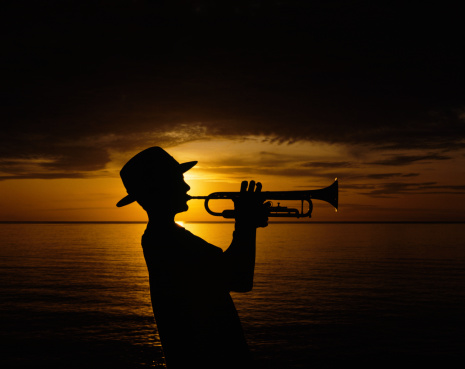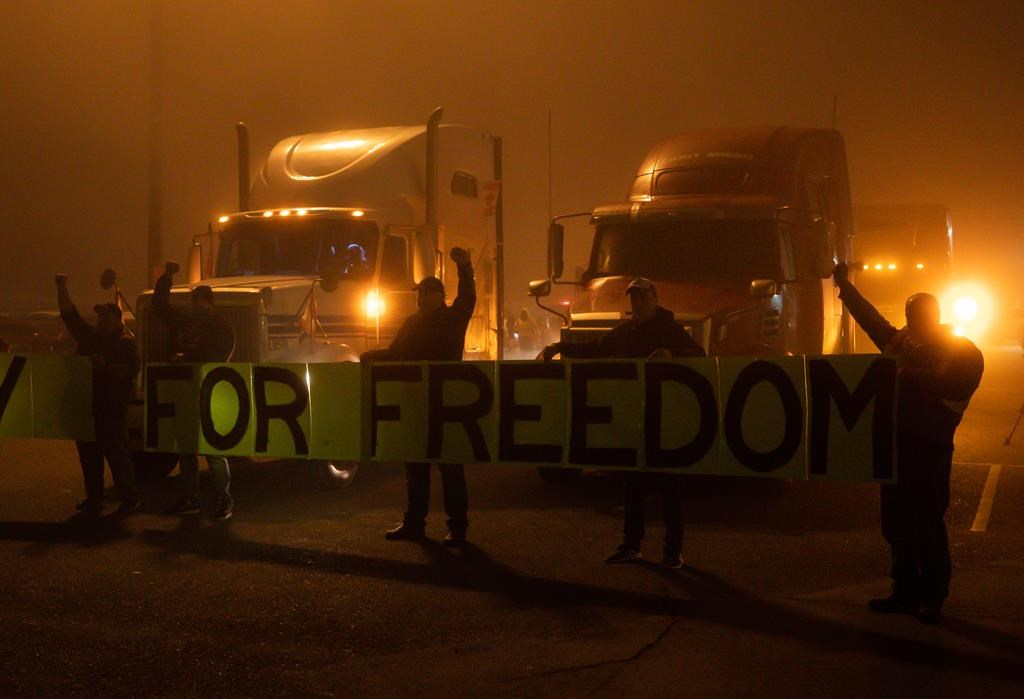
In the city that bears this great (common) man's name, Copland's Fanfare for the Common Man was a response to the part that millions of men and women were playing in the fight against totalitarianism in the guise of fascism: it was a celebration of that peculiar mix of viewpoints one must have to properly appreciate the identity of what others have derisively called "the masses" or "the silent majority." Thoreau characterized these as "the mass of men [who] live quiet lives of desperation." In one sense, Thoreau was referring to those, in his day, who blindly accepted the status quo and were not looking transcendentally at life: those who did not look beyond the roof and walls of atmosphere around them, conventions and propaganda, to the expanse of order beyond that is the foundation for the air they breathed, to the principles of justice and beauty. Therefore, in one sense, Thoreau may have been right: there are certainly many people who are "common" in the sense that they are complacent, uneducated, uninterested in anything beyond their own comforts. However, Thoreau, with a certain hue of the Harvardian self-important whiner, likely was looking, ironically, too narrowly from his own status in the intellectual class to see whom Copland, decades later, might be referring to.
Who was Copland celebrating? I've seen many of them in the history books, like Horatio at the Bridge; like Cloelia, a Roman woman who came out of obscurity to fight when it was needed; fishermen at Galilee who dared to follow a nomadic Rabbi; the unknown artists who helped keep Christian civilization alive by creating bibles like the Book of Kells; those obscure faces under helmets in the mud who lived for weeks and months in the pits of hell on the front lines of Europe; pioneers on the Oregon Trail who left directions for others not to repeat their mistakes as they forged across the West; Native Americans who pursued justice as they were forced onto reservations, a justice that was not revenge...the list goes on and on, countless common men, women, and children who actually made history. Made history. Allowed it to continue.
Copland's Fanfare begins with simple brass notes, one and then two instruments. The melody sounds immense, expansive, like two cherubim calling across eternity: a surprisingly majestic theme for nobodies. The echoes continue, deepening, as they are joined by more instruments, more complex movements. It is a slow coming together of innumerable voices: What are they saying? And to whom?
I have seen the common man, that elusive figure that stands for many. I saw him one day when I was looking down 1st Avenue from an apartment window; I saw the garbage trucks, the taxis, the ambulances, the little silver commuter cars all edging their way, as a group and as individuals weaving, making small decisions in traffic, to work. I thought of all of them collectively getting up at 5 am each day to put food on the table, to educate their children, trying to commit to the daily tasks of life. I saw the uncommon common man when I was a young woman in San Francisco at a bus stop. He drove up, opened the doors, and smiled at me in the gathering dusk; he chatted with what would have, could have been anonymous, isolated passengers: he enjoyed us, he enjoyed his bus, he brought joy into being in a roaring white box in a maze of roads and apartments. I see the common woman in the faces caught on camera during the Depression, holding her children, looking beyond to their future even as hers closes down around her. Their voices are the call to life, the call of the heart and the backbone of any culture, a long, consistent courage. Sometimes we don't pay attention to the billions of good acts each day, because they aren't interesting to us; they don't raise our itchy curiosity for the different, the sensational. However, seeing the good isn't about interest: it is about beauty. The true common person continues to Choose the Good, the basic goods of family and community life, the essence of political life, and these acts are beautiful. When millions of people choose the good without any fanfare, they are calling to God and are lovingly watched by Him.
Therefore, leaders, political, religious, or intellectual, make a great mistake when they forget the true identity of the common person. He or she grows our food, delivers it, serves it, tends our sick, teaches our children, puts out our fires, creates beauty, helps bring new life into our world, stewards the earth and the millions of small communities on the globe. They are not the "thousand thousand thousand [wheel-tenders]" referred to contemptuously and fearfully by the Controller, the totalitarian-population eugenicist in Huxley's Brave New World. Rather, like the Romans ignored Cincinnatus on his farm until things went wrong, you don't think of or see the common person until things start to go wrong; the common man is often a little late off the block, hesitating to introduce disorder into the delicate balance of community and life: but off the block he and she will come, especially once the lives of their children and their communal life are in danger.
In our day, an old and tired story is being acted out once more: In a culture more focused on celebrity and self-absorption (the common person is also culpable here), elites have, yet again, gone Caesar or Marc Antony and think too highly of themselves, going from over-stuffed capitalists into totalitarianistas, and for some reason, as it has always been, billions of dollars are not enough: they need to live forever on the backs of others, they need greater and more perverse pleasure to continue being happy: satisfaction and security instead of virtue and the consistent, courageous, choosing of the Good as they best understand it. In our day, politicians have allowed themselves to be owned by corporations (echoes of facism) or have been run out of office. A situation like this only requires a catalyst to send it into oppression: enter the Public Crisis, whether that be a health crisis, economic crisis, or a climate crisis.
For the power-gluttonous, these crises are opportunities, and sometimes they are also tempted to manufacture them or fan them into a greater flame. Surely everyone knows from history that for those with wealth to invest, any situation that forces mass purchasing, on the backs again of the common person, is a gold mine. Therefore, whatever one's opinion on the origins and soundness of these crises, the evidence of "raking in money" on the part of a few is self-evident. And, worst of all, as CS Lewis said, is the tyranny that claims its actions are "for your health" or "for your good" or "for the good of society." As one heroic common person, an Austrian MP, said, "Tyrants use apparently good ends as alibis."
In our day, though, Copland's Fanfare is still playing: listen for it. The trumpets begin with the few courageous who dare to lose everything in order to speak the truth from their ploughs: from hospitals where patients are being killed by medical malfeasance, from schools where children are being abused because they can't breathe well for hours on end, from small rallies on bridges across the world, to bigger rallies, to thousands of trucks honking their way to capitals in true service of their brothers who refuse to be coerced into an experimental gene therapy, to ethics professors standing on the great ethical tradition they teach even when fired, to students writing poems about the oppression they have faced over the last two years.
It is playing in the crowds growing around the world, crowds listening to heroes and common people from all perspectives, echoing to each other even across the abyss of sound created by a failed, captured media.
Play it again, Common Man.
